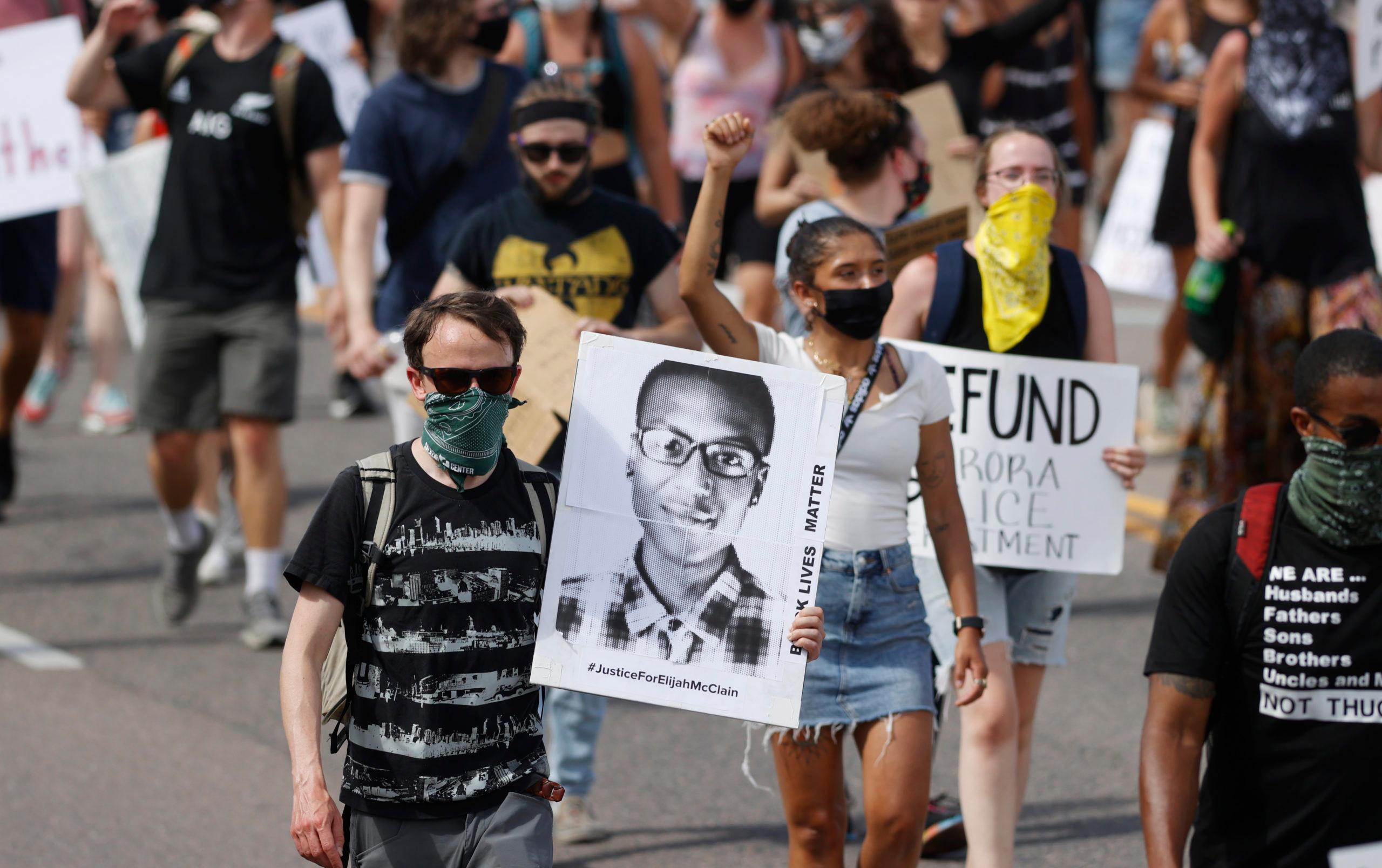
Correction: This story has been updated to correctly refer to Nathan Woodyard. He is a suspended officer and performed the second of two carotid choke holds on McClain.
A judge has ordered that three former police officers and two paramedics criminally charged in the death of Elijah McClain will have three separate trials — setting up a fight among the five defendants about who exactly caused the young man’s death in 2019.
In a two-page ruling issued late Wednesday, Adams County District Judge Mark Douglas Warner ordered the two paramedics, Peter Cichuniec and Jeremy Cooper, to be tried together. Suspended officer Nathan Woodyard, who was the first on the scene with McClain and performed the second of two carotid choke holds, will be tried by himself. And the other two officers, Randy Roedema and Jason Rosenblatt, will be tried together. Rosenblatt attempted to perform a carotid choke hold, but it didn't make McClain pass out, as the former officer intended.
They all face felony charges in McClain’s death, including criminally negligent homicide and manslaughter after a grand jury indictment in 2021.
The judge on Wednesday acknowledged that, already, the various defendants were pointing fingers as to who caused McClain’s death, which necessitates separate cases.
“While the cause of death will ultimately be determined by the juries, a theory may be advanced that the physiological effects of the struggle with the law enforcement officers combined with the ketamine injection resulted in the death of Mr. McClain,” Warner wrote. “Alternatively, the physiological effects of the physical struggle, to include the effects of the carotid control maneuver used by defendant Woodyard resulted in serious bodily injury to Mr. McClain.”
McClain was walking home from a convenience store late at night in August 2019, when former Aurora Police Officer Woodyard received a call on a person walking down the street wearing a mask and acting suspiciously and making crazy hand gestures.
Even though McClain, who was Black and unarmed, was not suspected of committing any crimes, Woodyard, who was first on the scene, attempted to restrain McClain, who was resisting orders. Roedema and Rosenblatt arrived and a struggle ensued. Woodyard placed McClain in a carotid hold, and McClain lost consciousness. Paramedics arrived and injected him with a large dose of ketamine, and McClain died a few days later at a hospital after suffering cardiac arrest.
The original autopsy was issued a couple of months after McClain’s death and was conducted by a contractor forensic pathologist paid for by Adams County. That autopsy found McClain’s death to be “undetermined” and said the 23-year-old could have died from a handful of causes. But after additional evidence presented during a closed-door grand jury investigation, which met during the summer of 2021, the coroner officially changed the cause of death to ketamine, but left the manner of death as “undetermined.”
The five defendants are expected to enter pleas Friday afternoon in Adams County after months of delays by defense attorneys. That is due to, in part, their appeals to the judge to have the cases separated.
In the first 15 months of court proceedings since the grand jury indictment, a judge was trying to keep the prosecutions together.
“The court well understands the legal theory of complicity,” Warner wrote. “Nonetheless, the court finds that under the particular facts as alleged in this case warrant severance of trials.”









